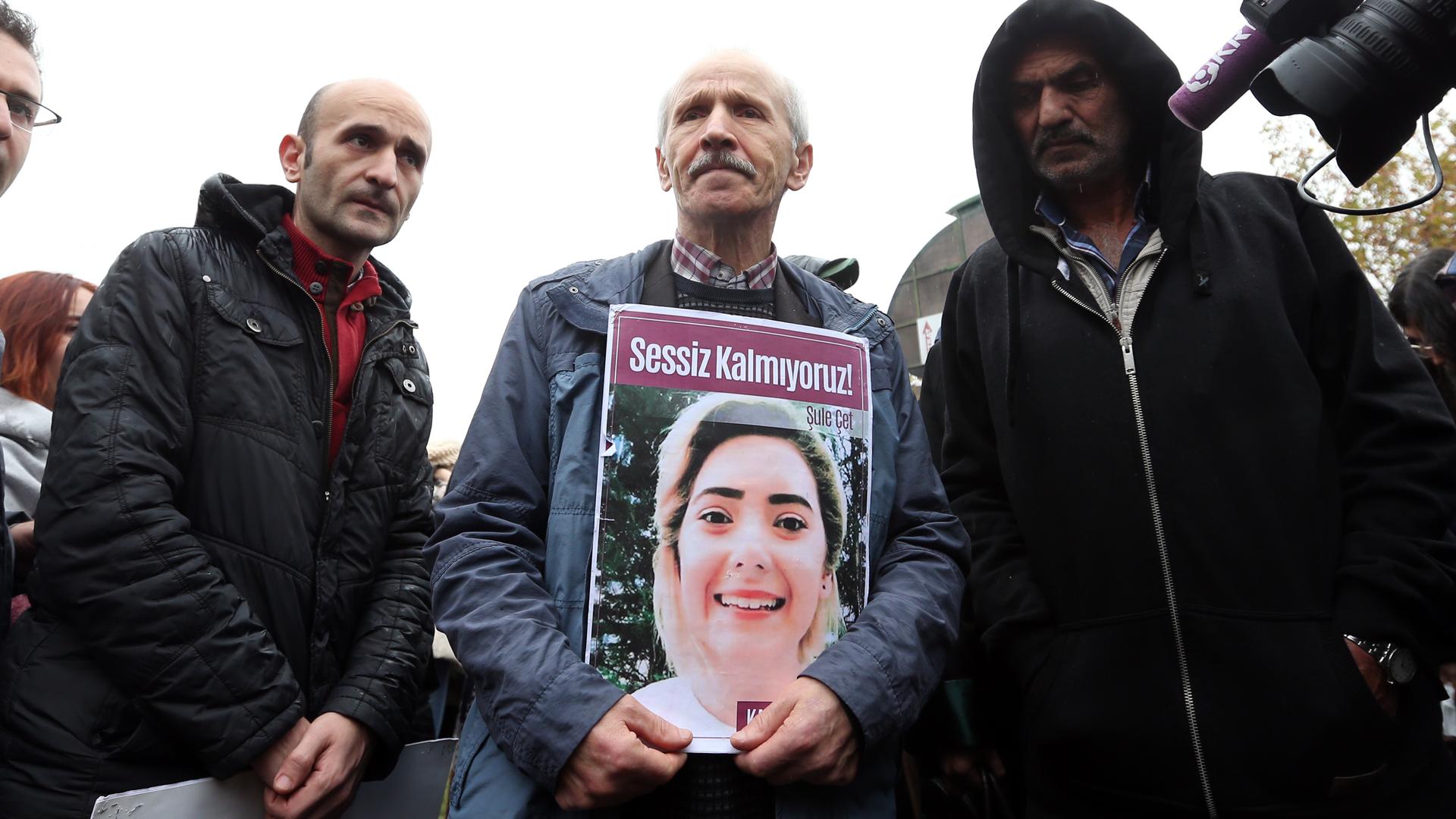
A Turkish court on Wednesday sentenced two men to lengthy prison sentences for raping and killing a university student in Ankara, the nation’s capital.
In May 2018, Sule Cet, 23, fell to her death from the 20th floor of a high-rise building in Ankara, in a case that got widespread media attention amid calls to do more to end murders of women.
Ankara’s 31st High Criminal Court sentenced Cagatay Aksu to life in prison for murdering Cet plus another 10 years for sexually assaulting her and two years for holding her against her will.
Berk Akand, accused of aiding in Aksu’s crimes, was sentenced to 12 years and six months as an accessory to murder, five years for aiding in sexual assault, and one year and three months for aiding in Cet’s captivity.
Timeline and evidence
On the day she was murdered, Cet had met with Aksu, her former boss, about her problems after being laid off from his company, which had faced financial woes.
After dinner, they went to Aksu’s office on the 20th floor of a high-rise, where Cet was found to have fallen to her death at around 4 am.
Aksu initially testified that Cet tried to commit suicide and he had tried to prevent her. The other defendant, Akand, said he was present in the office but had fallen asleep, and did not see anything.
However, correspondence between the two defendants revealed that Aksu urged Akand to revise his testimony, saying the sleeping defence was unconvincing. Aksu also stressed that the men should cooperate to avoid jail sentences, saying: “We will stand or fall together.”
Both denied the accusations of rape and murder, but DNA and other forensic evidence said otherwise.
That was not the only proof against the defendants. A text message Cet sent her roommate two hours before her death, seeking an excuse to leave, asked her to call and say Cet needed “to come home urgently.”
Another message to her roommate said: “I can’t get out of here, this man is obsessed with me. He doesn’t let me go.”
Reactions in Turkey
The case sparked anger across Turkish society after the men claimed the university student committed suicide.
There was also an attempt to suggest Cet was somehow to blame because she drank alcohol, and there was uproar at a hearing earlier this year when the defence lawyers speculated over Cet’s virginity.
At another hearing, Aksu reportedly told Cet’s father: “If only you’d looked after your daughter,” widely seen as criticism of his parenting.
The high-profile case became a cri de coeur among activists seeking to stem rising violence against women.
Another case that shook the public was that of a female university student that was stabbed to death on Tuesday in Turkey’s Ordu city in the Black Sea region.
Ceren Ozdemir, 20, was stabbed to death by an unknown assailant while she was entering her apartment building. An ambulance called by witnesses rushed the student to the hospital where she died of her wounds.
After a long investigation including camera footage, police detained a suspect named Ozgur A.
Ozgur A. who confessed to the murder, had escaped from prison and followed Ozdemir to her doorstep.
Turkey’s “We Will Stop Femicides Platform”, a rights group, says 39 women were killed by men in November alone. The figure was as high as 53 in September.
While the government acknowledges the issue of violence against women, critics say not enough is being done to provide shelters and to address the broader problem of gender inequality which permeates society.
Turkey ratified the 2011 Istanbul Convention on preventing domestic violence, but in some cases, defendants are still able to receive reduced sentences if they claim provocation or because of “good behaviour” in custody.










Discussion about this post